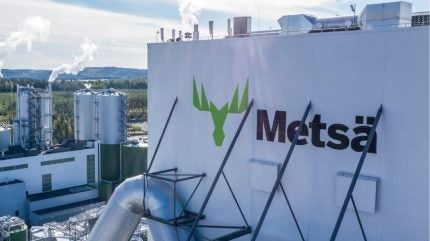
Metsä Group, a leading global provider of sustainable wood-based products, is intensifying its efforts to capture and utilise carbon dioxide (CO₂) emitted during its production processes.
The company believes that this untapped resource holds significant potential for creating new, high-value products and contributing to a more sustainable future.

Discover B2B Marketing That Performs
Combine business intelligence and editorial excellence to reach engaged professionals across 36 leading media platforms.
Metsä Group’s production units generate 12m tonnes of wood-based CO₂ annually.
By capturing and repurposing this greenhouse gas, the company aims to reduce its environmental impact and explore innovative industrial applications.
“Bio-based carbon dioxide is an important but still untapped side stream that could be harnessed more effectively as the technology and markets develop,” said Kaija Pehu-Lehtonen, the newly appointed project director for Metsä Group’s carbon capture initiative.
The potential benefits of carbon capture for Metsä Group are significant.

US Tariffs are shifting - will you react or anticipate?
Don’t let policy changes catch you off guard. Stay proactive with real-time data and expert analysis.
By GlobalDataIf successful, the technology could provide the company with a new, abundant source of wood-based raw material, which can be used to replace fossil-based alternatives. This aligns with Metsä Group’s commitment to responsible resource management and the circular economy.
“We aim to use Nordic wood in a resource-efficient way and make ever greater use of our production side streams to convert wood into increasingly valuable products,” said Sari Pajari-Sederholm, executive vice-president for strategy at Metsä Group.
To assess the feasibility and potential impact of large-scale carbon capture from its bioproduct mill’s flue gases, Metsä Group is conducting a comprehensive survey. The results are expected in autumn 2024.
In a groundbreaking move, the company will also be piloting carbon capture technology at its Rauma pulp mill in collaboration with technology company ANDRITZ.
This pilot project, scheduled for 2025, will provide valuable insights into the practical implementation of carbon capture and its potential for scaling up.
If successful, carbon capture could pave the way for the development of a significant new chemical industry in Finland.
By combining renewable hydrogen with wood-based CO₂, Metsä Group envisions producing synthetic methane or methanol, which can be further processed into a range of products.





